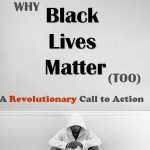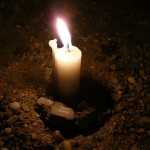I think this is part of why the early Quakers were so stodgy, rejecting music and theater and always dressing in grey. I think it’s also why modern Friends still place such a high value on plain speech. A rhetorical flourish might help me to win an argument with you, but in so doing, cost me the benefit of your wisdom. The corporate process of listening for the leadings of Spirit means listening deeply to one another, and that works best when each of us speaks our portion of the Truth with neither preamble nor apology, trusting that if the message is Spirit-led, it will be heard on its own merits.
This is all true. And in spite of it all, I have written a sonnet.
Light and Darkness One
My mind cannot deny my body’s truth.
The passions rising of their own accord
In mellow age, as in the fire of youth,
Will speak their meanings plain, though not with words.So let me know you, and by you be known,
Stripped naked past the skin to stand revealed,
My longing and my lust, my blood and bone,
Disclosing spirit fear would have concealed.We shed our righteousness and all pretense,
Convicted of our love, and unafraid.
We come together, knowing what we sense,
And in our fire, find holiness remade.And only then, with light and darkness one,
Is God’s creation properly begun.
This began percolating in my mind after a weekend retreat I went to recently where a group of us were working on a statement about Quakers and sexual ethics. (This was not the same retreat I wrote about in “Silence and Intimacy”, though it was also a deep and spiritually intimate experience.) The group has been meeting for several years, and the poem embodies something I’ve been trying to put into words there for quite a while.
I look at what I have written, and I see in it the ways in which I’m still very much a Pagan: celebrating darkness as the complement of light rather than its adversary, and sexual lust as a force for good, and beyond that, as a source of holiness.
The Quakers I’ve shared it with so far don’t see it as un-Quakerly. In spite of the intense “outward forms” imposed by the sonnet structure, it celebrates directness and unadorned truth. The overturning of righteousness is no more radical than anything George Fox advocated or practiced, and the call to stand unafraid and declare what we know experientially is very Quaker.
So I guess it’s a good synthesis of the Pagan and the Quaker that I am. A “Quaker Pagan Reflection” indeed.















